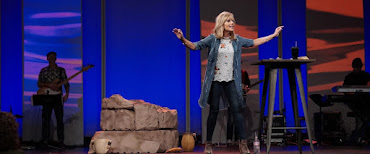Why I'm Still Baptist Part 1
Over the last five years I have analyzed and re analyzed my beliefs and have compared them to what the Bible says. For a couple years I shunned the Baptist name although I knew that many of my beliefs were still held by Baptists. Last year I read, or rather listened, to a book on the history of Baptists in America. After listening to this book I came to the conclusion that I am still Baptist theologically even though I reject many of the practices and applications that Baptists have held to and practiced for the last couple generations.
First let me go over the Baptist distinctives and what defines the modern Baptist. As Baptists so often do they either alliterate or do acrostics. This time they have done an acrostic.
Biblical authority
Autonomy of the local church
Priesthood of all believers
Two Ordinances (believer's baptism and the Lord's Supper)
Individual soul liberty
Saved and baptized church membership
Two offices of the church (elder and deacon)
First of I’ll address Biblical Authority. This distinctive is not exclusive to Baptist and is held by most protestants. There are exceptions of course and a lot of Christian denominations that consider themselves liberal and/or progressive do not hold to Biblical Authority. I personally hold to biblical authority because there has to be an ultimate authority. If I do not hold to Biblical authority then you must place something or someone above the Bible. That tends to be the individual and whatever the individual thinks or wants. Knowing that everyone is sinful and imperfect the individual cannot be the final authority. Thus the Bible must be the final authority.
Next we have Autonomy of the local church. This is a primary Baptist distinctive and very few other denominations recognize this. Most denominations are either episcopal or Presbyterian. These two forms of church government place men over other men and women. This lends itself to abuse of the office. Episcopal church government puts the power in the hand of a hierarchy of men. Presbyterian church government put the power in the hands of a group of men. Baptist are historically Congregational, which technically puts the power in the hands of the people. This I believe is the best option of church government. There are always exceptions and there are always going to be men and women who can manipulate others and abuse others while holding to the notion that the people have the control. One doesn’t have to look very far in order to find men who manipulate people and the Bible in order to maintain a position of authority which they can then use to control and abuse people. It can be argued that congregational polity is the most susceptible to abuse. While this argument has merit and I agree with it to a point, the argument can also be made that congregational polity also offers the most freedom from abuse when the congregation holds their leadership accountable.
The third Baptist distinctive is the Priesthood of all the believers. This distinctive is very important to me. It means that I have the right to go right to God. I don’t need a priest or a pastor to intercede for me to God. I don’t need a priest or pastor to explain scripture in order for me to understand it. It puts all believers on equal footing. There is no “Man of God” that has more access to God than I do. I can hear directly from Holy Spirit and glean the understanding of both what He is putting on my own heart and what the scripture says.
The Priesthood of all the believers also puts every Christian, whether Baptist or not, on equal footing in respect to their own specific beliefs and interpretations of Scripture. This allows me to accept others of different denominations and belief systems as Christians. If any person can display their faith in accordance with James 2, then I will accept them as Christians and fellowship with them as such.
The two ordinances, believers baptism and the Lord’s supper are the fourth Baptist distinctive and it is this distinctive that gives us the name Baptist, and is probably the oldest Baptist distinctive. The Lord’s supper as an ordinance is very common and Protestant churches practice this usually either on a monthly or weekly basis. They agree that there is nothing in the Lord’s Supper that is sacramental as Catholics would argue. Believer’s baptism in the modern American church is not something that is considered a controversial subject and is practiced far and wide. However the reason that Baptists are called Baptists is because they opposed Pedobaptism, the baptizing of a baby before they can make a conversion decision. The view of believers baptism was very unpopular and was persecuted in Europe and even in early America. The unique circumstances of the revolutionary war and the realization of the colonial leaders that in order to win Independence from Great Britain that they would need the help of the Baptists lead to certain compromises that lead to the religious freedom that we have today.
Individual Soul Liberty ties in with the Priesthood of all believers. One could argue that they are two sides of the same coin. While the Priesthood of all believers emphasizes that all believers have access to the three persons of the God Head, Individual Soul Liberty emphasizes the individual’s ability to make decisions based upon what Holy Spirit communicates to them either directly or through scripture. As an individual I have liberty to believe and practice in a way that I choose. This also ties in with Biblical Authority. If I can show from the Bible that what I am doing is either commanded or not prohibited then I am at liberty to do anything. Paul of course reminds us that “All things are lawful but not all things are helpful. All things are lawful but not all things build up” 1 Corinthians 10:23. While thing need to be considered in relation to this verse it is up to the individual to determine how far to take their own liberty. I have no say in another’s exercise of their liberty as another has no say in my exercise of my liberty.
The sixth distinctive is Saved and Baptized church membership. This goes back to both the church government and Believer’s Baptism as an ordinance. A Baptist church is made up of individuals who are both saved and baptized. No other thing is required. One’s race, gender, nation of origin, financial position, or other characteristics are required to be a church member. Obviously there must also be a sharing of theological beliefs and practices, but outside of major disagreements about theology and practice the only thing required to join a baptist church is that one is saved and that they have been baptized after conversion, preferably by immersion, although I have seen exceptions where due to medical reasons immersion was either not possible or dangerous to the individual.
The last Baptist distinctive is Two Offices of the Church, Elder and Deacon. While these two offices are the only biblical offices mentioned in the New Testament each church deals with these two offices differently. The way in which a church treats these offices can either lead to great accountability or great abuse. Understanding that both offices are positions of servant leadership is, I believe, is key to avoiding abuse. Elders and Deacons should be men who have high character, wisdom and grace. When people look up to the people in the office of Elder or Deacon as better or closer to God than those who are not Elders or Deacons, then abuse can very readily occur.
This is a basic overview of the Baptist distinctives from my perspective. I will go more into some of the reasons that I am still a Baptist in part two.
Next time I will explain some of the food and drinks that Ann and I are planning to enjoy while watching the Super Bowl with some friends.





Comments
Post a Comment